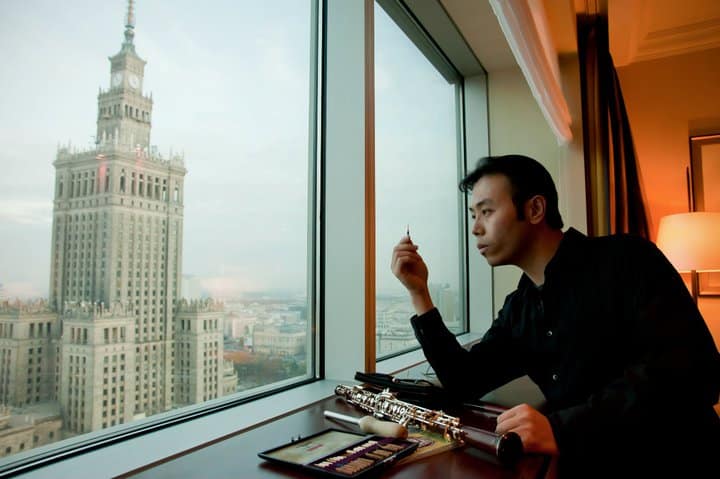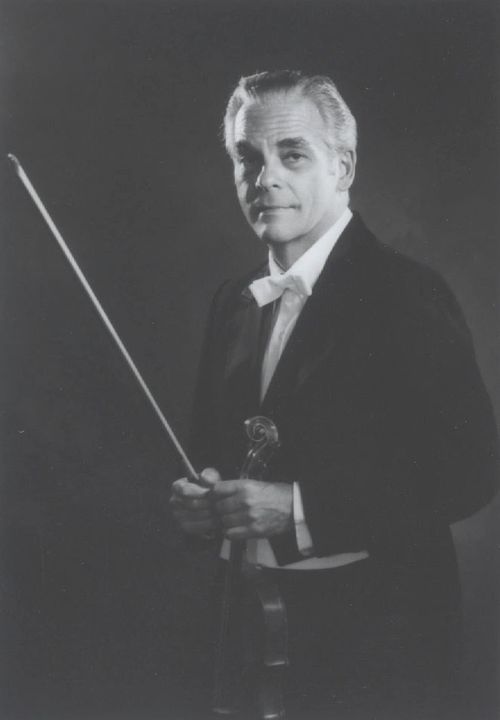Who owns Ravel’s Bolero? A court will decide today
NewsA multimillion dollar trial begins today in Nanterre, France, over who owns the rights to the most successful and stultifying score by Maurice Ravel, who died in 1937.
At war are the rights organisation Sacem and the titular heir to the Ravel estate, Évelyne Pen de Castel.
Ravel died childless. Most of his copyrights expired in 2012. But Bolero – as ever – plays on.
A 2023 letter to the Times Literary Supplement gives some clarigication: When Maurice Ravel began to compose his “Boléro” in 1928, he certainly did not intend to make his brother’s wife’s masseuse’s husband’s second wife’s daughter a multimillionaire. But that is what has happened, and Ravel’s copyrights in the US are secure until 2032.
More detail here.






€100 million sounds a little inflated to me.
As a very big admiror of the french genius I’am fed up about the fact that when we are talking about him it’s too frequently about taxes and lawyers. Especially in the french press. His music belongs to everybody not only the Bolero.
It’s 40 years ago today (Valentine’s Day) since Jayne Torvill and Christopher Dean won their Ice Dance Olympic Gold Medal with a ground-breaking iconic routine skating to “Bolero” in Sarajevo, and scoring 6.0 across the board for artistic impression. Their performance sparked subsequent changes to the Ice Dance rules – they’d spotted a few loopholes, not least that the clock doesn’t start ticking until the first skate touches the ice, so they were able to set the artistic tone with their kneeling sway, using 18 seconds more of the hypnotic music before they started their permitted 4 minute 10 second routine. They will end their Ice Skating careers on 11 May 2025, in Glasgow, and a 50-year skating partnership. I say “Thank you Ravel”, and “Thank you Torvill and Dean”.
I know how important this Bolero was in UK in 1984. It’s maybe the biggest TV record for the summer and winter olympics in this country.
It was pretty high here in Canada, too. Unforgettable. I saw it many times on TV, and live when Torvill and Dean toured here with an ice concert of their greatest hits.
They were the culmination of that form — I remember some of the iconic skaters they succeeded, like Moiseeva and Minenkov. Subsequent dancers have been pleasing enough to watch, but whether is is the tightened rules or something else, none has had the impact of Torvill and Dean. And not just in Bolero, though that is probably their best standalone piece.
Another change that was instituted: no more lying down on the ice at the end.
I believe that Bolero is still under US copyright because of the 1998 Sonny Bono Copyright Term Extension Act (CTEA), sometimes called the “Mickey Mouse Protection Act”. This legislation extended previous copyrights in the US by 20 yrs. aka to 95 yrs from the date of creation.
To Disney, a “limited term of protection” means eternity, minus one day.
Yes, it was published in 1929, so it will become public domain in the US on January 1, 2025.
And the beat goes on….
Disney lobbied the current congress to further extend the copyright term but was unsuccessful.
Disney got big retaliation on copyright extensions from the US far right Republican flank just as Mickey was nearing the public domain. The Repubs assumed that Disney alone was reaping the benefits of US copyright extensions. Senator Josh Hawley of MO actually put forward a bill in 2022 aimed at stopping Disney’s copyright extensions. https://www.hawley.senate.gov/hawley-introduces-bill-strip-disney-special-copyright-protections
I question that 2032 date. US copyright for published works created before 1978 lasts for 95 years from date of publication, not from creation or the author’s death. If Ravel wrote Bolero in 1928 and published it soon thereafter (Wikipedia says it was published in 1929), US copyright would expire some time around now or next year.
I beleive that the 1928 Steamboat Willie version of Mickey Mouse came out of copyright on Jan. 1 this year. So you should be right. (note that later versions of Mickey Mouse are still protected). I am not sure if they can do what Prokofiev’s estate seems to be doing with some of his ballets.
Prokofiev’s Estate, like Gershwin’s, still consists of actual relatives of the composer who have some knowledge of music & understanding of how to issue new editions to benefit from copyright laws. They’re following the example of Stravinsky, who did this to his own works while he was still alive. Stravinsky was educated as lawyer in Russia & had a great knowledge of copyright laws. Stravinsky, interestingly, sued Disney at one point for unauthorized use of Rite in Fantasia. He lost, but more power to him.
Ravel’s Estate, on the other hand consists of non-relatives who have a very far-fetched relationship to the composer, who died unmarried & childless, and who have no knowledge whatsoever of music.
If you follow the links in the article Norman posted, you’ll see that the “copyright protection” on Bolero is being sought by a woman who is something like the daughter of the ex-husband of the masseuse of Ravel’s brother. She’s making beaucoup bucks on Bolero rights, won’t spend a penny to restore the home where he composed Bolero & is basically freeloading off of Bolero’s income. She doesn’t have the musical knowledge of the offspring of Prokofiev’s 2 sons who knew to create the new editions they’re offering.
And furthermore that lady(names Perrine) married a so called pianist called Michel SOGNY who launched a musical school to promote young pianists!!!Where does the money come from ???Guess…
Now days such legacies are left to a charity.
“…the most successful and stultifying score…”: brilliantly put!
Ravel himself was quite annoyed by its success, because any time he entered a restaurant in Paris with some friends, the little band began to play Bolero.
Ravel: “I have written only one masterpiece…the ‘Bolero.’
Unfortunately, it contains no music.”
it always amazes me the best spanish music is written by the french.
Watch the Celibidache perf. on Youtube _ stultifying? I think not…
Quel debacle!
Always the same misinformation from the great fake “journalists” of the net. Plus the internet craps, In France the bizarre long campaign agains’t the Ravel Estate is conducted solely by the newspaper Le Figaro (informed by whom? Why?). It is the heirs of the 1928 set designer Alexandre Benois of the I. Rubinstein’s Ballet, and not the heirs of Ravel or Durand Publishing House (they joined the plaignants side after the Benois Estate) who initiated this lawsuit agains’t the SACEM, which is a complex legal debate on the definition of a collaborative work and not an artistic question about who composed Bolero (!!). The following link is a transcript of yesterday’s hearing: https://fr.news.yahoo.com/droits-dauteur-bol%C3%A9ro-au-tribunal-201605240.html?guce_referrer=aHR0cHM6Ly93d3cuZ29vZ2xlLmJlLw&guce_referrer_sig=AQAAADe4UJmI5xnbS-UsPOJTmCe3mmoOkIL085Sa25RmFMvC21DUubK6n2eVhDnIL5KtZsxnn756f-Jbxzi18LW8q8MzNl6ATFnroxle7dFiNmIeut8feWL4gYXgPgfPbsuyRsqFA9gnjo_qZy2xhsR9r_9TXVq6lNkpA6LDyAEJKDPe&guccounter=2
Less gossips around Ravel, more about his art and works !
Thanks for the clarification, Fan. This issue was not covered accurately in English language media. How were we supposed to know?
Understanding copyright issues for important compositions isn’t “gossips”. These rulings affect our access to parts, scores & our very ability to perform Bolero.
Only a non-performing armchair musician or an ignorant dilettante would call for there to be less knowledge of copyright laws around Ravel, which you have so haughtily done.
Fan has supplied knowledge, something your monoglot reliance on inaccurate English-language reports did not give you. Knowledge is not the same as gossip.
Yes, Fan provided the correct information, but did so with a heavy dose of condescension. Sharing knowledge shouldn’t be an act of disdain.
I was grateful for the link in French, which is a language I’m comfortable with. Just because someone is a polyglot doesn’t mean they regularly follow the news in every language they speak.
This blog is in English. We follow the links here. They happened to be inaccurate.
Fan chided us like a haughty school mistress. We were scolded for being curious about Ravel’s copyright issues. We were reprimanded for not simply ignoring them in favor of blindly appreciating Ravel’s “art”. This is pretty typical of a non-musician or an enthusiastic dilettante. Musicians who actually play Ravel usually want to understand why copyright laws can make that expensive or impossible. That’s not gossip.
Imagine how classical music performers and audience would benefit if we could perform the magnificent 20th C works with greater freedom and less financial penalty? The majority of the most gifted young performers cant afford the time or the fees to play music that is not quite out of this ridiculous 95 years, so the best of that music is only heard by aging symphony orchestra subscribers.
The problem of royalties for the composers is a strange one. It is meant to benefit the composers, but in practice it often creates an obstacle for the very performances which would have to generate money for the composers. The societies who collect the royalties take their percentage from the royalties as well, so they live on it. If the money is collected from other countries than the country in which the composer is living, there are two of such societies involved who skim the royalties. So, there are people living on royalties who had nothing to do with the production of the work.
In the end it comes down to the question: if a composer produces his work, who is going to pay him? (meant in a metaphoric gendering sense). There is the commission structure, but what about repeat performances? Somehow money for performance should be paid by another source than the performers, for instance some regulation by the state: for every performance a living composer gets an X sum, without it creating any obstacle for the performances proper.